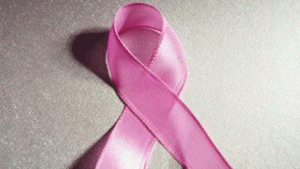Health desk||
Breast cancer, which has been seen predominantly in women above 50, is striking young women, even teenage girls. And doctors are divided on whether genetics or lifestyle is the primary culprit.
Recently, a 14-year-old schoolgirl in Coimbatore was diagnosed with breast cancer. Delhi’s youngest patient was a 19-year-old. Oncologists say each hospital sees two or three such teenagers every year.
While teenage cases still remain a rarity, the cancer registry at Sri Ramakrishna Institute of Oncology and Research (SRIOR) in Coimbatore shows the incidence of breast cancer in women below the age of 35 has gone up from 3% to 8% in a decade. The Indian Council of Medical Research (ICMR) registry in Delhi confirms the trend: Incidence in the 20-40 age group has gone up from 5% to 15% in 20 years.
Going by the records at Kovai Medical Centre, Coimbatore, every year after 35 seems to be a danger zone for women. “Almost 40% of our patients are below the age of 40. Women in this age group constituted 10% around seven years ago,” says Dr Rupa Renganathan, consultant radiologist at the centre.
Dr P K Julka, who heads the Delhi chapter of the ICMR registry, says: “There is a threefold increase in incidence among women aged between 20 and 40.”
Though India lacks a population-based cancer registry, and the triggers of cancer remain largely unknown, some oncologists believe lifestyle changes are leading to hormonal changes. “One probable reason is obesity and people’s BMI, which is higher than it used to be in the earlier generations,” says Anand Narayan, oncologist at G Kuppusamy Naidu Memorial Hospital.
Dr Renganathan agrees. “Increase in dietary fat intake leads to hormonal changes like excess estrogen production which is known to increase the risk of breast cancer,” she says.
Dr Julka, however, is not convinced. “We cannot attribute it to only lifestyle and dietary habits,” he says. “Anyway, early diagnosis is the key.”
Then there are older theories blaming late marriage and delayed pregnancy – beyond the age of 30 – which contributes to excess estrogen. “Late marriage, late pregnancy and having lesser number of children are associated with breast cancer,” says Dr Renganathan. “This is because a breast matures or develops completely only after it lactation and breastfeeding. Breastfeeding reduces estrogen production. So, the earlier you breastfeed, your exposure to estrogen gets reduced by a year.”
Doctors say any woman below the age of 40 diagnosed with breast cancer should undergo genetic screening and counselling. “We have noticed that a majority of them have a cancer history in their family,” says Dr Narayan.
SRIOR director Dr P Guhan says: “A majority of them have some mutation of genes BRCA 1 or BRCA 2 which act as tumour suppressants. So when these genes are absent, the breast is more prone to tumour formation and cell alternation.”
Dr Julka says this is all the more relevant in cases of patients below the age of 20. “In girls, below 20 years of age, genetic predisposition or familial history is main cause of breast cancer,” the doctor says. “Risk factors involving lifestyle, for example obesity and dietary habits, take longer to cause hormonal imbalance and disease.”
Mutations of genes, which can be inherited from either of the parents, make men too susceptible to breast cancer.

